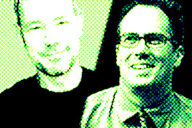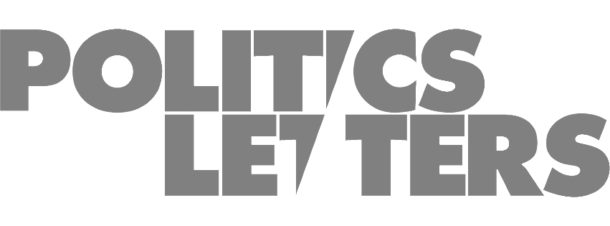By ANDREW HARTMAN and JAMES LIVINGSTON
The following exchange originated on Facebook, where Andrew Hartman noticed that James Livingston was getting agitated enough about the Left’s animus toward liberalism to deploy the term “alt-left” in several posts, so he probed the idea in a series of questions about liberalism and the Left.
Andrew Hartman: You’ve been arguing about the history, legacy, and meaning of the left in relation to liberalism with many people on your Facebook page for the past week. It seems that many on the left are heavily invested right now in distinguishing their political tradition from the liberal tradition. I argue that there are historically good reasons for this—that the American left has long defined itself in opposition to American liberalism in large part because Hartz was right, or at least seemed right, that the liberal tradition was the only game in town. But you seem to think that such hard-and-fast distinctions speak to sectarianism. Are those the stakes as you see them? And why have you been using the “Alt-Left” label to describe the anti-liberalism of the left? In doing this you seem to equate the far left and far right, or the “Alt-Right” that people have been fretting about since Trump’s election. Is this useful? It seems to me a move back to the Vital Center or the horseshoe theory, and frankly I don’t see any use in that.
James Livingston: My remarks at Facebook over the last few weeks are elaborations or extensions of arguments I’ve been making for years. These arguments were implicit, at least, in the 1994 book, Pragmatism and the Political Economy of Cultural Revolution, more obvious in the 2001 book, Pragmatism, Feminism, and Democracy, and made explicit in my 2004 essay on Eugene D. Genovese for Radical History Review.
My premise was not, and is not, that liberalism is the only game in town as per Louis Hartz—I think John Pocock and others did us all a huge favor by rehabilitating civic republicanism as a “recessive” yet significant gene in the pool that constitutes the American political tradition (think of the Port Huron Statement)—but rather that socialism, like capitalism, is an extremely variegated political phenomenon. Like capitalism, it can be liberal and democratic, or statist and authoritarian. In history, as against theory, it has no predictable political valence.
Perhaps a better, more direct way to put this is to say that socialism cannot survive without markets. Absent a liberal insistence on the supremacy of civil society over the state—the sovereignty of the people—socialism will devolve into command economies and authoritarian regimes, as in Russia and China, which between them take up almost the entire Eurasian land mass.
Put it another, more provocative way. Socialism was a component of fascism in Italy and Germany. The fascists, like the communists inspired by Marxism—another unstable, unpredictable isotope—promised to abolish the decadence of bourgeois individualism by annihilating the modern liberal distinction, or opposition, between state and society most clearly articulated by John Locke and the Anglo-American empiricists who followed his lead, among them David Hume, Adam Smith, Adam Ferguson, Thomas Paine, Sam Adams, James Madison, David Ricardo, James Mill, and John Stuart Mill.
In both cases, fascism and communism, from Georges Sorel and Carl Schmitt and Giovanni Papini to Lenin, Stalin, and Mao, the state—actually, the party—supplanted society, and with it both markets and the modern individual born of civil society (on this gestation Hegel’s Philosophy of Right and Marx’s Grundrisse are the key texts). The communist parties of the interwar years were no less bent on dismantling liberalism in this sense than were the fascists. Either way, it was a bloodbath.
The two socialist writers who warned us most effectively against the repudiation of liberalism, because they understood how that move would undermine democracy itself, were Eduard Bernstein in Evolutionary Socialism (1899), and Carlo Rosselli in Liberal Socialism (1930). Lenin denounced Bernstein as a “revisionist,” a traitor to the cause of Bolshevism and, eventually, communism. That label has stuck for more than a century, partly because Bernstein valorized markets, small business (the petty bourgeoisie!), civil society, political pluralism, always insisting that the means used by the socialist movement would determine its political end—social democracy or party dictatorship.
Rosselli is the more obscure figure. He was murdered by fascist assassins in 1937, while in exile in France—having fought on the Republican side in the Spanish Civil War, he was trying to generate European support for opposition to Mussolini, Hitler, and Franco. Liberal Socialism is his indictment of both the Marxists and the fascists, on the grounds that they were equally willing to destroy modernity itself in the name of a new order, a new man.
I mention Bernstein and Rosselli because they’re voices from the past, my past, that remind me, anyway, of how honorable and necessary political commitments can be disfigured by turning the founding gestures of modernity into enemies of the people.
What can I possibly mean by this statement, which verges on the melodramatic if not the apocalyptic? These gestures, as I call them, were causes and effects of the Age of Revolution, ca, 1770-1820. First, “Man as Man is free.” That’s Hegel. Second, and consequently, “All men are created equal.” That’s us. Third, liberty is impossible in the absence of equality. Also us. Fourth, the people out of doors are sovereign, not the state, not the party, not the government, not the cabinet, not the parliament, not the legislature, and not the ministers. Again, us—but every revolution since that one is animated by the same urge.
In our time, the Right has been the genuine threat to both liberty and equality. By curtailing the right to privacy, abortion rights, and meanwhile promoting income inequality, thus eroding social mobility and opportunity. By rescinding hard-won voting rights, defunding education, protecting the 1% at everyone else’s expense.
But the Left has, to my mind, recently been more interested in the project of equality than liberty, and this (again, honorable) commitment has permitted or required a deployment of state power that seems, to me, a danger to the rights we can claim as citizens and the liberal legacy that informs them. I’m thinking, of course, of the Title IX inquisitions that have challenged the free speech and the academic freedom of professors who have protested their reach. But it’s not just on campus that the Left wants to be illiberal.
I don’t want to prove Bernstein and Rosselli right. I want to demonstrate that socialism and liberalism are not just compatible, they’re essential ingredients of each other. The Left needs liberalism, and vice versa.
AH: That is an excellent thumbnail intellectual history of your project that adds important context to your Facebook provocations. There is a lot to agree with here, particularly the idea that socialism is a project of modernity and that we should not be in the habit of rejecting modernity. But let me push you to clarify a few things.
Can you say more about the state-society distinction that you see as crucial to liberalism—give us more of this distinction’s intellectual history? If democracy is one of the goals of the left—and surely it must be—then we must be vigilant in the face of an authoritarian state. On that we agree. But in valorizing civil society against the state, many on the left will have a problem with your emphasis that markets are a crucial ingredient of civil society. Markets might not be anti-democratic or authoritarian in theory, but the way in which The Market is used as a sledge hammer for the power of the 1% at everyone else’s expense—especially in our neoliberal age but of course Marx warned about this 150 years ago—it’s difficult to imagine another world in which markets are liberating. I know you have written about this in some of your recent work, so perhaps you might expand here.
The kneejerk anti-liberal rhetoric by many on the left in our current moment is not necessarily grounded in intellectual history—especially your alternative, dare I say revisionist narrative of liberalism—but is rather a product of recent political events, namely the 2016 election. As this just-so story goes, a liberal defeated a socialist in the Democratic primaries before losing to a fascist in the general election precisely because of her liberalism. This is an oversimplification, yet it is a useful story because it sheds light on popular conceptions of liberalism that inform the left. You write that “the Right has been the genuine threat to both liberty and equality.” But leading liberals have been complicit with the right, and your effort to reclaim liberalism for the left is going to run up against this basic fact. Perhaps you should have more patience with the current anti-liberal mood on the left?
Let me also return to Hartz because I am not convinced that Pocock’s civic republicanism is distinct from American liberalism in any meaningful fashion. If we read Hartz seriously, we must come to the conclusion that liberalism in an American context, especially as it developed in the twentieth century, is not a very good philosophy on which to base revolutionary or even reformist politics. Hartz believed liberalism a superior political philosophy to its challengers on the left and the right, and that the United States was exceptional in its dedication to it. But he also recognized that the American liberal tradition displayed “a vast and almost charming innocence of mind.” Because American liberalism lacked the “class passion” that animated European politics—the passion that gave life to revolutionary and reactionary forces— it was premised on the assumption that moral questions about the good life had been settled. And when ethics are taken for granted, Hartz argued, “all problems emerge as problems of technique.” This technocratic disposition explained the “unusual power of the Supreme Court and the cult of constitution worship” in American political life. Americans had replaced political speculation with legal tinkering. The American liberal tradition, in this way, was less a political philosophy than an anti-philosophy. Maybe what I am doing here is arguing that in an American context, the concern should not be about socialists embracing liberalism, but rather vice versa, liberals adopting socialism.
JL: Why do leftists see liberalism as a constraint on democratic socialism, rather than a necessary condition of it? Bernie Sanders would seem to be a case study of their affiliations—their elective affinities, you might say. He’s a democratic socialist committed to the fundamental principles of liberalism: to the supremacy of (civil) society over the state, to individualism as guaranteed by this relationship, and to the proposition that positive government is necessary because markets cannot and do not regulate themselves. But no. The either/or choice remains.
As I understand the Left’s current demographic and intellectual architecture, it has three complaints against liberalism. First, liberalism valorizes liberty as against equality, and reduces liberty to freedom of contract: it presupposes markets as the infrastructure of civil society, and posits them as the necessary condition of democracy as such. Second, it promotes individualism as against community or collective identities; indeed its emphasis on inviolable rights—and its corollary, consent as the principle of political obligation—tends to muffle minority voices and thwart majority rule. Third, it sanctions imperialism and the militarization of foreign policy.
It’s not an exhaustive list of leftist complaints about liberalism. But these are the essentials as I have come to understand them. In addressing Complaint 1, I’m starting on an answer to your first query, about markets.
For the argument about liberty versus equality, see Michael Kazin, American Dreamers, Eli Zaretsky, Why America Needs a Left, and their antecedents in the anti-Federalist (Progressive) historiographical vein, Turner and Beard to Jensen and Lynd, on toward Gerald Horne. This argument perversely echoes those of the libertarian Right, which also sees liberty and equality as mutually exclusive commitments.
I don’t buy it. Tom Paine, Sam Adams, and James Madison were consummate liberals according to my specs—also radicals, each in his own way—who cited Locke in arguing against the claim of parliamentary sovereignty and for the supremacy of society over the state. But all three understood that liberty as grounded, to be sure, in property rights was at risk insofar as equality was not the political goal or the social norm of the people and its polity.
Madison was particularly adamant, consistent, and articulate about it, nowhere more so than in his 1787 letter to Jefferson on his friend’s draft of a state constitution for Virginia, written as a distillation of his thinking about republics ancient and modern, and his private memorandum of 1821, written as the Missouri crisis unfolded. It was Madison who insisted that the “two cardinal objects of Government” were “the rights of persons and the rights of property,” and that all previous republics had failed as popular government because the rights of property had superseded the rights of persons and had therefore reduced the polity to an oligarchy—“the poor were sacrificed to the rich,” as he put it. The new American republic would also fail if its founders followed that uniform example. Sure enough, the old American republic is now failing because the so-called conservatives of our time have forgotten, or repressed, this original intent, that is, to guarantee that the rights of persons would modulate, contain, and, if necessary, countermand the rights of property.
Now, we all know that corporate liberalism bears little resemblance to the Manchester School variety of the 19th century. But the liberal tradition in America as depicted by Hartz, Hofstadter, Williams, and Sklar—“consensus” historians, you might say—is still a continuum defined by those fundamental principles I began with, including the lack of faith in self-regulating markets and the consistent belief in positive government. The Jeffersonians devised the activist American System (protective tariffs, “internal improvements,“ Bank of the US) as their answer to Alexander Hamilton’s anemic attempt to make the US a junior partner in the British Empire. The Whigs advocated “internal improvements” even after the southern wing of the party revolted in the 1840s. The Republicans drew up a blueprint for modern America that made the federal government the engine of economic growth and development until the 20th century, when its animating force became even greater. Across the entire 19th century, the only exception to the rule of liberalism, so conceived, was the “do-nothing” governments led by Jacksonian Democrats, but they were aggressive advocates of territorial expansion by means of “Indian removal” and war against Mexico—in the name of slavery.
The corporate liberals of the early 20th century knew that the question of their time was not whether but how to regulate, or rather reinvent, the market: “ruinous competition” and “overproduction” had created one crisis after another, often punctuated by class conflict and armed struggle. They also understood that their pro-capitalist ideas and programs had to address and contain socialism (as well as Populism) if they were to be taken seriously by the American people. In this crucial sense, they believed as the founders did, that equality and liberty—or the rights of persons and the rights of property—were not the terms of an either/or choice. In the same sense, they also believed that the programmatic differences between their liberalism and the Left’s socialism were a matter of degree, not kind.
The corporate liberals carried the day in the Progressive Era because their ideas and programs were consistent with the central, founding principle of American politics—the supremacy of society over the state. Neither the socialists nor the Populists could make that claim at the time, because their ideas and programs did subordinate civil society to state command; so they lost the “war of position” fought over the future of the corporation. But corporate liberals like Theodore Roosevelt did draw imaginatively on the Left’s statist vision of regulation and reform, in the hope of avoiding either a corporatist state that was the servant of large capital or a socialist regime that replaced private property in large-scale enterprise with state ownership; among his many successors in these terms were FDR, LBJ, and MLK.
In the Osawatomie speech of August, 1910, for example, TR recalled Madison’s two cardinal objects of government: “We are face to face with new conceptions of the relation of property to human welfare,” he declared, because every businessman, every employer, “holds his property subject to the general right of the community to regulate its use to whatever degree the public welfare may require it.” Or again: “It is not even enough that [wealth] should have been gained without doing damage to the community. We should permit it to be gained only so long as the gaining represents benefit to the community. This, I know, implies a policy of a far more active government interference with social and economic conditions in this country than we have yet had, but I think we have got to face the fact that such an increase in governmental control is now necessary.”
That was the political philosophy of the Bull Moose program TR outlined at Osawatomie. Is it liberal or socialist? Or both? Among the reforms he mentioned in the same speech were environmental conservation, progressive income and estate taxes, workmen’s compensation, legal guarantees of workplace safety, regulation of child and women’s labor, expanded public education, farm co-ops, day care centers for working women, higher wages, lower hours . . . .
Let me turn briefly to the more general question of markets as such. You say that the modern liberal state/society distinction or opposition is a useful check on authoritarian regimes, here as elsewhere. But you go on to say that it’s “difficult to imagine another world in which markets are liberating.” I find that hard to believe, Andrew, because you’re an accomplished intellectual historian.
Think of the inhabitants of the Soviet bloc before, during, and after the Prague Spring, then before, during and after Solidarity, glasnost, perestroika, the Velvet Revolution. Think of the women liberated from the patriarchal household and familial roles by their participation in the labor market—before the Civil War, again in the transition from proprietary to corporate capitalism, then during the 1940s and 50s. Think of the apprentices similarly freed of that household in the antebellum decades, and of the freedmen who understood wage labor as a welcome alternative to slavery.
In the late-19th century, the Knights of Labor believed, with good reason, that if all participants in the market—all producers—were equally subject to the same laws of supply and demand, equality would be the result. Big business, monopolies, “the trusts,” these were artificial entities that could manipulate such laws, and so impair equality. They obtruded on the arm’s length bargaining that made all buyers equal in the view of the seller, and vice versa.
In the mid-20th century, the economists of Poland, Hungary, Czechoslovakia realized that the model of “extensive growth” derived from the Plan and driven by saving and investment would either be replaced by the Western, specifically American model of “intensive growth” determined by uncoordinated consumer preferences and demand—or it would fall into a prolonged crisis that destroyed the Soviet experiment, first with a whimper, then with a bang. Wlodzimierz Brus, Radoslav Selucky, Istvan Friss, and many others preached a large dose of commodity fetishism in the 1950s and 60s. They knew that socialism couldn’t survive without markets. By now, we ought to be able to understand their position.
As for your second query, let me first see if I understand you. I’ll translate it as three statements. The Left’s anti-liberal attitude is a recent phenomenon animated by the 2016 election, not one grounded in a deeper past. The neoliberals have in fact conspired with the Right to undermine democratic values, and to elect as president someone we can plausibly designate a neo-fascist. No wonder leftists have indulged in anti-liberal antics, both rhetorical and otherwise.
My previous remarks already express my disagreement with this formulation. Your argument, that the Left has always defined itself as against the vital center, the liberal mainstream, is also inconsistent with that formulation. We both know that the history of the Left over the last hundred years is strewn with examples of socialists and Marxists who believed that liberalism was simply the ideology of capitalism, and who behaved accordingly—as if liberals are the enemy.
The novelty of the current Left’s anti-liberal animus is not that it exists, but that its headquarters are to be found on campus and in the art world, where liberal toleration, free speech, and intellectual diversity once reigned.
Now, was I a little too hard on the comrades by suggesting a moral equivalence between an alt-left and the alt-right? Probably. I was trying to grasp the deep hatred of liberals and liberalism that motivates both the Left and the Right, and to pose two questions. Does the mainstream of American political discourse remain liberal? Or has the paranoid style that once patrolled only its margins now guard the middle ground as well?
On to your query 3, in re: Hartz and the vitality of the liberal tradition.
There is a crucial difference between civic republicanism as Pocock portrayed it and liberalism as Hartz portrayed it. That difference derives from the attitudes toward history each tradition afforded its practitioners. Republicanism sustained the “quarrel of the self with history”—that is, the notion that commercial development and the division of labor would necessarily corrupt the citizens of the republic. Liberalism never got in that bind because commercial development was built into its periodization of modernity. In Pocock’s terms, it was closer to the “ethos of historicist socialism,” which saw in industrial capitalism not the eclipse of morality but the emergence of a new moral universe.
Liberals are better equipped to underwrite reformist or radical politics, then, because from their standpoint history is not by definition a movement away from a fixed standard of genuine selfhood or from authentic ways of life. Previous truths and novel facts go together in the liberal purview. Or, to put it another way, liberals are more likely than radicals and conservatives to see that ethical principles (“ought”) and historical circumstances (“is”) are not necessarily at odds.
Now, as for the Hartzian verdict on the innocence of class consciousness and conflict in the liberal mind. It’s totally inconsistent with the historical record. It’s a function of the American intellectual’s need to believe that previous generations avoided the language of class. The 19th and 20th century liberals I have read are steeped in this language because they feared the effect of class formation on republican political forms, and sought to pacify class conflict by economic means.
Questions about the good life have been equally profuse within the American liberal-pragmatic tradition. Think of the anxiety that saturates the discussion of liberalism itself in the 1950s—Hofstadter, Mills, Bell, et al. Hartz’s real complaint, like those of Hannah Arendt and Sheldon Wolin at the very same moment, is that the answers liberals offered weren’t variations on classical themes, that is, they weren’t political in the Aristotelian sense.
***
James Livingston is Professor of History at Rutgers-New Brunswick and the editor of P/L. He is the author of Against Thrift (2011) and No More Work, (2016).
Andrew Hartman is a founding father and first president of the Society for US Intellectual History. His most recent book is A War for the Soul of America, on the culture wars of the 1990s. His new book in progress is on Marxism in in American intellectual history.






No Comments